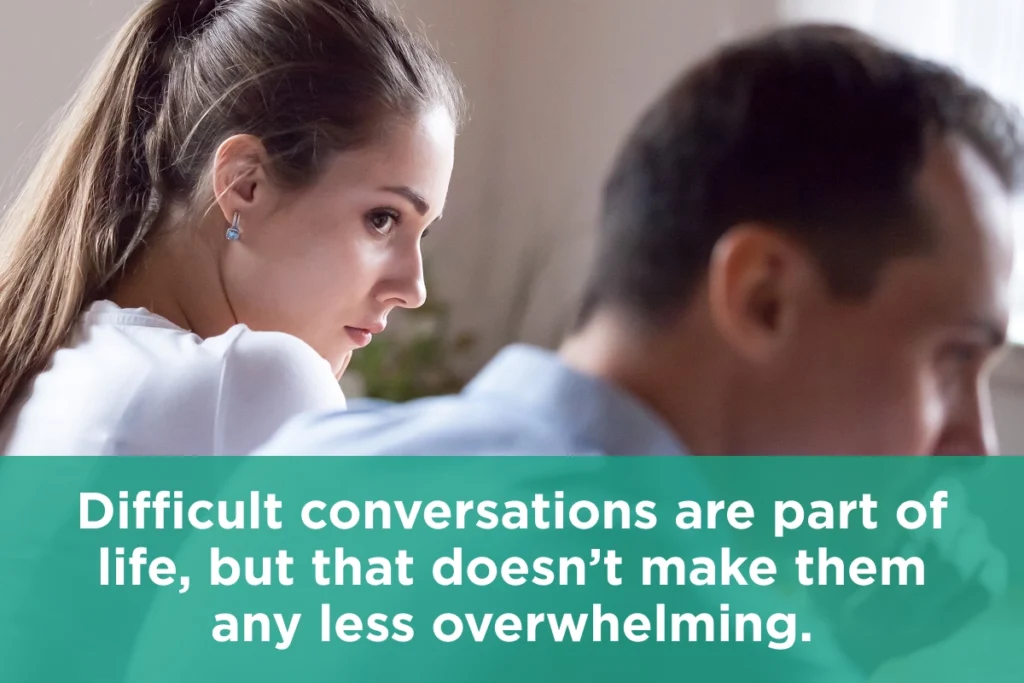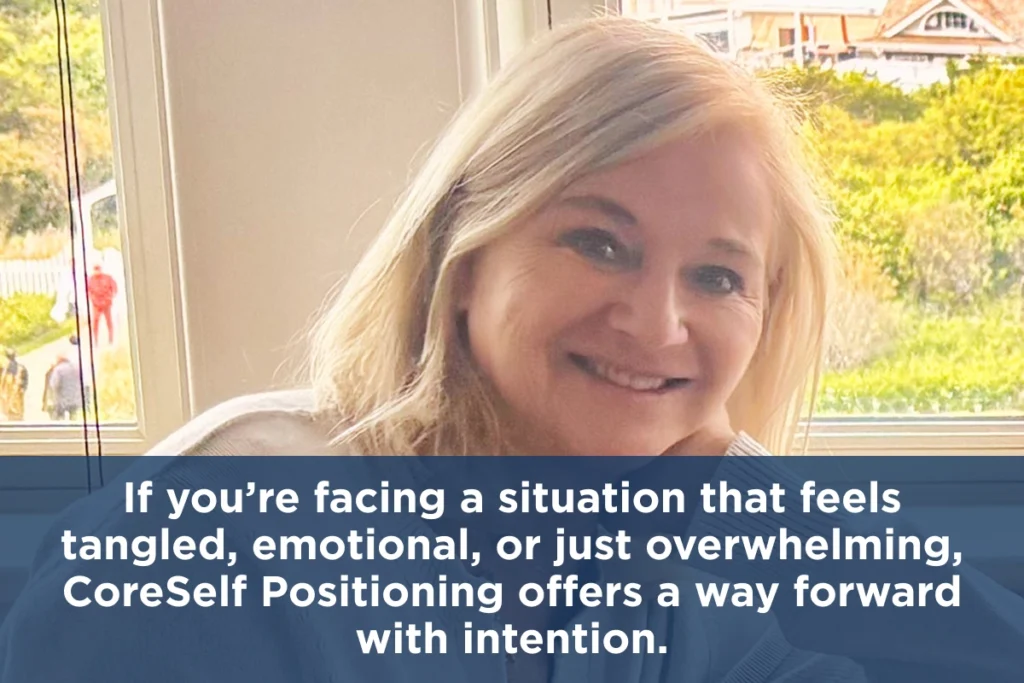CoreSelf Positioning in Real Life: How to Navigate a Difficult Conversation

CoreSelf Positioning was created to help individuals realign themselves with their own values, acknowledge others needs, and move positively towards the resolution of daily challenges. CoreSelf Mapping, an active writing exercise, is part of the process, and can be critical to unlocking what keeps us “stuck” whether personal or professional.
Susan, a retired business owner, is no stranger to decision-making, but when emotions began to muddy the waters too much, she needed help.
Susan needed to have a difficult conversation with someone about a situation that had become emotionally complex, marked by family ties, unspoken expectations, and growing internal tensions. She had left people feeling stuck, anxious, or unsure of what to do next. Susan found herself looping through the same internal dialogue, replaying scenarios, and avoiding the conversation altogether out of fear or uncertainty. She needed a way to step back, make sense of all the pieces, and approach the situation with clarity, compassion, and purpose. That’s when she turned to CoreSelf Mapping.
Q: Susan, can you tell us a little about your background and what brought you to CoreSelf Mapping?
“I’m a retired business owner. I ran my company for 25 years before stepping away in 2016. A former business associate introduced me to CoreSelf Mapping, and I’ve been using it ever since.”
Q: What was going on in your life when you first tried the mapping process?
“I used it to help me figure out what I needed to do next in a personal situation, which was to have a difficult conversation with someone.”
Before the map, Susan was feeling stuck. The situation was emotionally charged, and she didn’t want to damage her bond, but she also couldn’t keep avoiding the issue.
Q: What makes tough conversations like that so difficult?
“They’re very emotional. You think about them constantly, play out different scenarios in your head, but you don’t move forward.”
Q: How did CoreSelf Mapping help you prepare for the conversation?
“It helps if you don’t know where to start with a problem. Writing it all down makes a huge difference.”
Using CoreSelf Mapping to Navigate Difficult Conversations

Difficult conversations are part of life, but that doesn’t make them any less overwhelming. The emotional weight of these moments can see all the different aspects of the problem, what you’ve tried, what matters most to you, and what resources are available.
Putting everything onto a page and looking at it all in one place can help stop the “spinning” and give you the confidence to finally move forward.
Q: You’ve mentioned that values play an important role in the process. Can you say more about that?
“Absolutely. Core values are at the center of the map. For me, family is one of my deepest values.”
That didn’t mean avoiding the conversation-it meant having it in a way that was respectful, honest, and true to who Susan is. The map offers a balance of helping you stay aligned with your values while doing what needs to be done.

Q: What happened after the conversation?
“It felt like a weight was lifted. I had the conversation that I needed to have for the next step to take place. It was enlightening.”
Susan had done the work to approach the conversation thoughtfully, and that helped ease the emotional burden.
Q: What would you say to someone considering CoreSelf Mapping for the first time?
“This kind of inner work is something that everybody should make use of.”
You don’t have to be in crisis to use it. If you’re stuck, overwhelmed, or facing something hard, this tool helps. It’s not about solving everything at once. It’s about slowing down, taking one issue at a time, and finding your next best step.
Q: Any final thoughts?
If you are feeling stuck or have a single situation that is causing you stress, and you can’t seem to move on from it, CoreSelf Mapping helps you see the logic in your situation so you can figure out what to do next.”
If you’re facing a situation that feels tangled, emotional, or just overwhelming, CoreSelf Positioning offers a way forward with intention. You don’t have to have it all figured out, you just have to be willing to pause, reflect, and put it on paper. This isn’t about fixing your entire life overnight. It’s about taking one situation, one step, and finding your way through it, grounded in who you are.
Try a Guided CoreSelf Map, or read CoreSelf Positioning and see what opens up for you.
About the Authors
Jonathan Thomas, MSW
Whether at the potter's wheel, coaching medical professionals and teams, or in his private counseling practice, Jonathan Thomas has spent his life molding, shaping and creating something beautiful and new.
Tim Preston
As a successful serial-entrepreneur and angel investor, Tim Preston has spent the majority of his life learning, overcoming, and creating, from blank pieces of paper: self, spaces, teams, and businesses.
Together, Jonathan and Tim founded Simple. Not Easy., LLC, a company that developed CoreSelf Positioning™ tools to help companies and individuals to slow down and align energy levels, values, and actions in order to formulate their best next steps.
Learn more about Jonathan, Tim & CoreSelf Positioning.